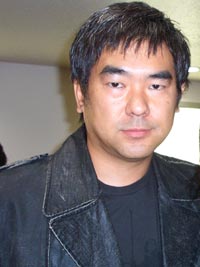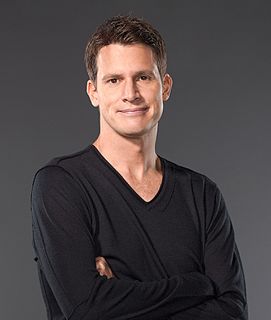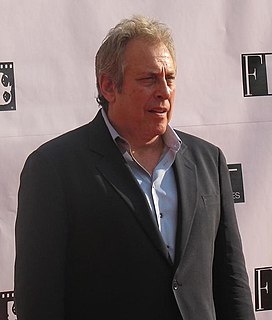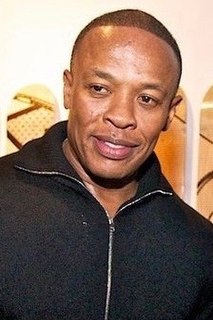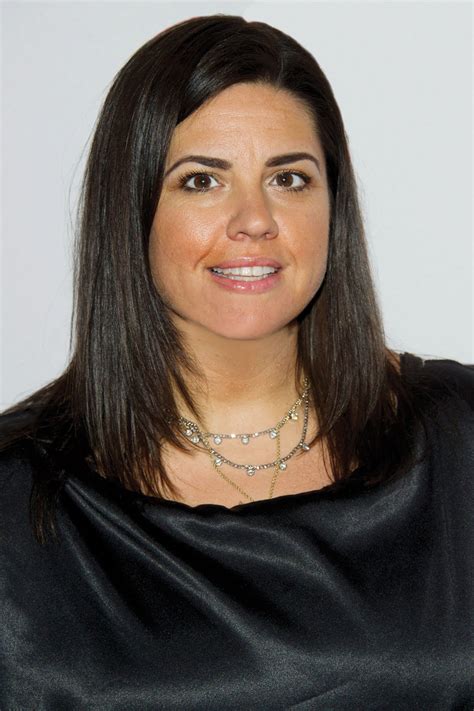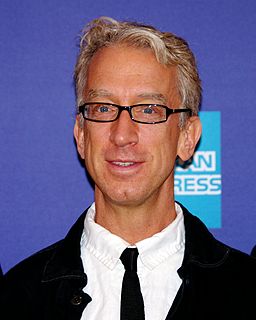A Quote by Ryuhei Kitamura
Producers say things that they would like to see in the movie but they don't see the full picture. In the end if you ignore everything the producers say, of course, you get fired; but then if you listen to a producer on everything then it's like 'Hey - why don't you direct your own movie?'
Related Quotes
Does everybody have their WWJD bracelets on? 'Cause I was wearing my bracelet recently, and I was in the movie theater, and this guy's cell phone went off - don't you just hate that? Then he picked it up, 'Hey, how's it going? I'm in a movie.' And I'm like, 'Hey! Get off the phone!' And he's like, 'Mind your own business.' And I almost went crazy, but then I looked at my bracelet: what would Jesus do? So I lit him on fire and sent him to Hell.
Even in our business, as is the world, we are in the age of specialisation. You see a lot of names of producers on a movie. If you have the idea, if you oversee the development, if you oversee the production, if you help package the movie, you sell the movie - you can be a producer. There's not a lot of us who do the whole gamut.
It's like when we get the transformer movies. It was all a bunch of smaller robot pieces and then you're on set, and you're watching them blow everything up and you see the movie and you say "wow there's a big giant spaceship crashes there and it turns into a transformer." It's stuff that you don't really see, because our involvement is so heavy.
I have no rules. For me, it's a full, full experience to make a movie. It takes a lot of time, and I want there to be a lot of stuff in it. You're looking for every shot in the movie to have resonance and want it to be something you can see a second time, and then I'd like it to be something you can see 10 years later, and it becomes a different movie, because you're a different person. So that means I want it to be deep, not in a pretentious way, but I guess I can say I am pretentious in that I pretend. I have aspirations that the movie should trigger off a lot of complex responses.
It's basically how I choose movie roles. Would I like to see this movie? Is this movie important? Why would I do this? And Headhunters is a movie that I would like to see in the cinema. And when it's sold to 50 countries or whatever, for me it's a great deal. I make movies for an audience so if that audience grows, I feel really honoured and thankful for it.
As a producer, the only thing you have is an opinion - and if you don't trust your own opinion, then everything becomes vanilla. And for me I always say this to my producers, 'If you're not sure what to do, just ask me.' I'm not smarter and it's not that I know better, but I've probably already made that mistake. As far as TV goes, a lot of it is just troubleshooting and dealing with problems that come up. So that's the message for the younger kids coming up: don't be afraid to say, 'I don't know,' cuz' that's the smartest thing you can say.
He very nearly stole a scene in my movie, and I didn't call him on it because I was just like, Hey, I saw some stuff on SuperDeluxe and how many different films do you have on there? And he goes, This one, this one, Comedy by Numbers and this one and one called 'Bob Pitches a Movie.' And I'm like, Oh! And then I was thinking he would say, which is very similar to the one to the one I did in your movie, but he never did. I just let it go. I don't care.
